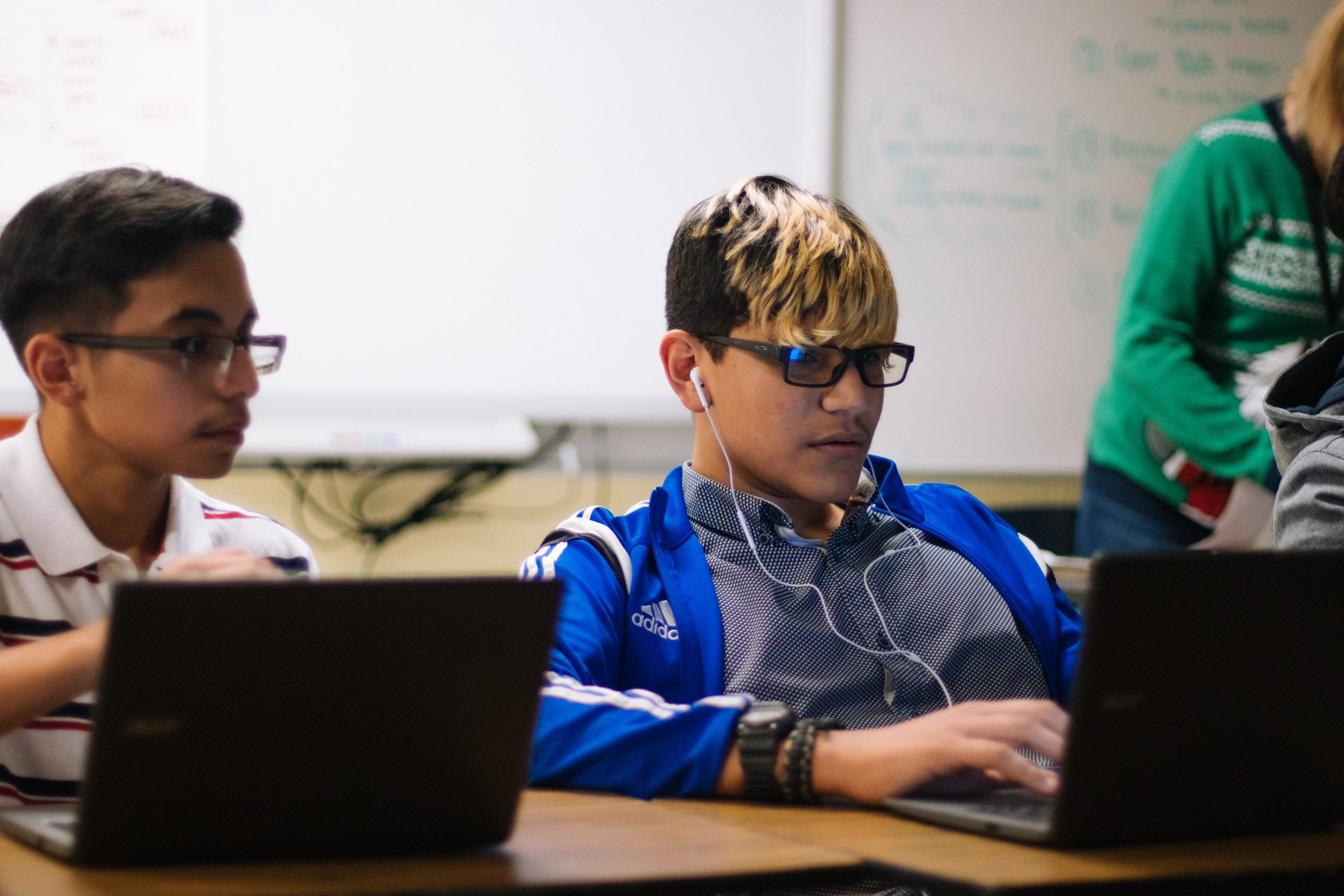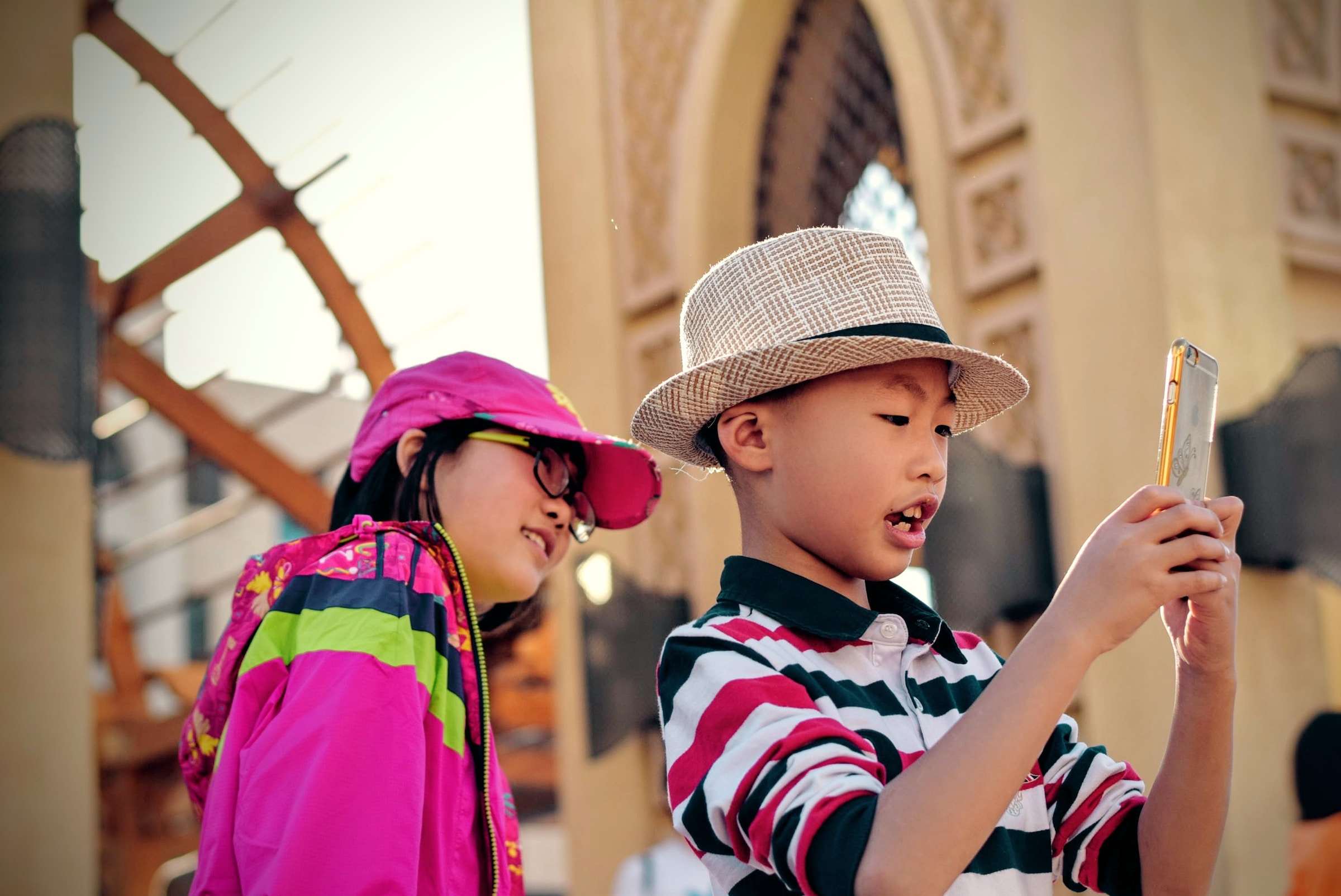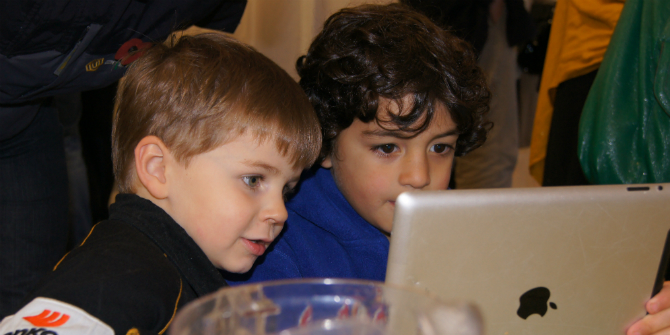

 LSE’s Sonia Livingstone, Mariya Stoilova and Miriam Rahali explain some of the findings of their new ySKILLS report, ‘Realising children’s rights in the digital age: The role of digital skills.’
LSE’s Sonia Livingstone, Mariya Stoilova and Miriam Rahali explain some of the findings of their new ySKILLS report, ‘Realising children’s rights in the digital age: The role of digital skills.’
It may seem obvious that in today’s (and tomorrow’s) world, digital skills and literacy have a vital role to play. But what does the evidence say about the tangible benefits? It has been particularly hard to establish the positive outcomes for children’s wellbeing and for the realisation of children’s rights in the digital age – and this is where ySKILLS contributes. In Realising children’s rights in the digital age: The role of digital skills, we take a unique child rights approach to the importance of digital skills and literacy.
To explore the role that digital skills and literacy play in whether children’s rights are respected, protected and fulfilled in a digital world, the report asks two research questions:
- Is there evidence that gaining digital skills and literacy facilitates the realisation of children’s rights?
- Is there evidence that the insufficient realisation of children’s rights impedes children in gaining digital skills and literacy?
To answer these questions, the report maps a child rights framework to the new multimethod findings from ySKILLS research with children and young people. As the report shows, digital skills and literacy represent both a valued outcome in themselves and also the means to the larger outcome of realising a wide range of children’s rights.
“Digital skills are the future and cover a lot of things.”
– Teenager, Portugal
“We are living in some kind of media augmented reality where we no longer have the possibility of not using digital skills. Maybe we should call it ‘competences of the future’ or ‘competences of continuous learning’ rather than digital.”
– Education expert, Poland
10 key insights
- Children’s digital skills improve with age, but age alone does not guarantee that children will gain skills in all dimensions or that they will master them fully.
- Children and young people who are most disadvantaged offline because of lower SES or migration are also more disadvantaged online.
- Children are adamant in wanting to be consulted about the digital skills and literacies they want to develop and the ways these should be delivered.
- Digital skills and literacy cannot always guarantee children’s wellbeing in the digital world, and joint responsibility from various agencies (educational authorities, governments and industry) is needed to ensure children’s rights are protected.
- Children with higher levels of digital skills may be better able to protect their privacy online. However, dark patterns can override any level of skill and expose children’s vulnerabilities.
- Higher levels of digital skills (particularly content creation) are associated with more, not less, exposure to risky and potentially harmful online content, including racist and discriminatory content, self-harm and pro-anorexia content, for example.
- Vulnerable children seem aware of online risks, and they have developed a variety of coping strategies. Still, finding a way out of difficult situations may be a lonely and uncertain endeavour and require trusted and secure points of contact for help and support.
- The dimensions of digital skills also make a difference. Children with higher information navigation and processing skills reported better school performance, but children with higher content creation and production skills reported lower school performance.
- Skills are interdependent and there is a need to go beyond operational skills into more social digital skills and the role of digital skills as “life skills.”
- There is growing concern that the digital environment is designed to be risky in ways that prioritise profit over children’s rights and best interests. New and emerging dimensions of digital literacy including ‘data literacy’ and ‘algorithm literacy’ should be considered.
There were also considerable cross-country differences in both the level and development of digital skills and literacy. This demonstrates the importance of the local context, and the necessity of national actions. Further, it should be noted that digital skills and literacy cannot always guarantee children’s wellbeing in the digital world and joint responsibility from various agencies (educational authorities, governments, industry), is needed to ensure children’s rights are protected.
Recommendations
Digital skills and literacies make a difference to most if not all of children’s rights in the digital age. Any lack, or inequality, in children’s digital skills impedes the full realisation of their rights.
“If I don’t have a phone, I have nothing.”
– Refugee teenager, Greece
We conclude with the following recommendations:
- Enabling children’s digital skills and literacy requires careful consideration of the many and diverse forms of disadvantage or marginality that characterise children’s lives. Helping them overcome barriers is not only a priority, but also an obligation on governments as part of their child rights commitments.
- Educational and policy initiatives ought to be based on accurate reports of a child’s digital skills and literacy. This in turn must pay attention to the distinct dimensions of digital skills, as ySKILLS research shows that they have different antecedents and consequences.
- Educators should be supported to develop the capacity to both teach the skills and administer digital tests, so they can assist in assessing and improving student performance.
- Supporting children’s online activities, especially social and creative activities with digitally skilled peers, could build their self-efficacy and, thereby, the digital literacy they need. To this end, highly targeted – rather than generic (“open door”) efforts – are required to counter inequalities.
- Encouraging children to learn for themselves can be powerful. Stakeholders should be supportive of children’s own interests, agency and participation, as it might prove more beneficial in the long run than adult guidance, judgement or restriction, however well intentioned.
As Realising children’s rights in the digital age: The role of digital skills shows, there are several factors that enable and impede children’s digital literacy and the opportunities to exercise it, and these must remain high on stakeholders’ agenda to fully realise children’s rights in a digital world.
Further information
The report framework adapts the Digital Futures Commission’s 11 principles of Child Rights by Design for child rights advocates, educators and policymakers. These principles are grounded in the United Nations Convention on the Rights of the Child (1989) and General comment No.25 by the UN Committee on the Rights of the Child (2021). Watch our short video here.
Children’s rights and digital literacy are thoroughly established in European regulation, as we show in relation to the EU Charter of Fundamental Rights (2012); the Strategy on the rights of the child (2021), the European strategy for a better internet for kids (BIK+) (2022), and the European Declaration on Digital Rights and Principles (2023).
- You can download the full report or visit the interactive version.
- For more about ySKILLS conclusions and recommendations, see: recommendations for policy and practice, action points for EU policy and theoretical integration.
- For ySKILLS evidence, see: synthesis of ySKILLS results and longitudinal survey findings.
- For our research team at Media@LSE, see here.
This post was first published on the ySKILLS blog and is reposted with thanks. It represents the views of the authors and not the position of the Media@LSE blog, nor of the London School of Economics and Political Science.





